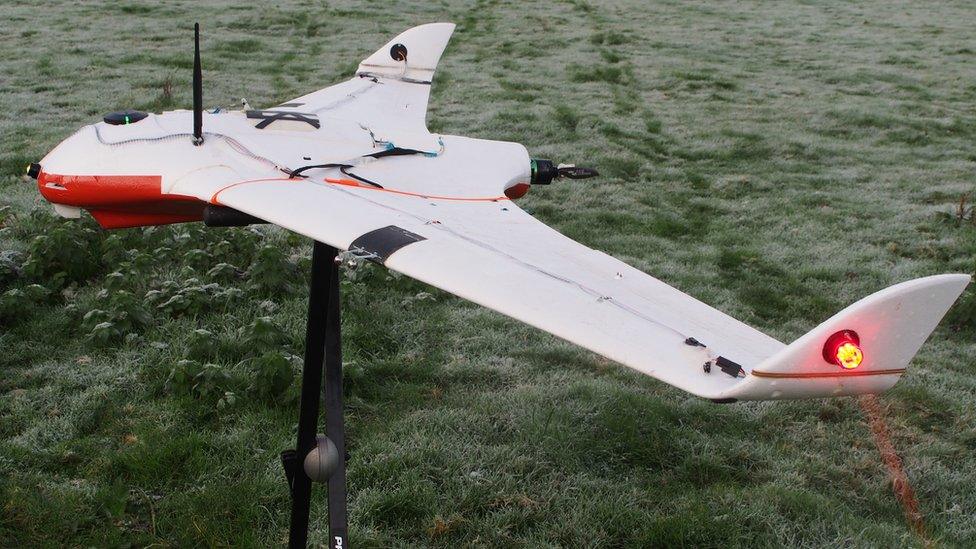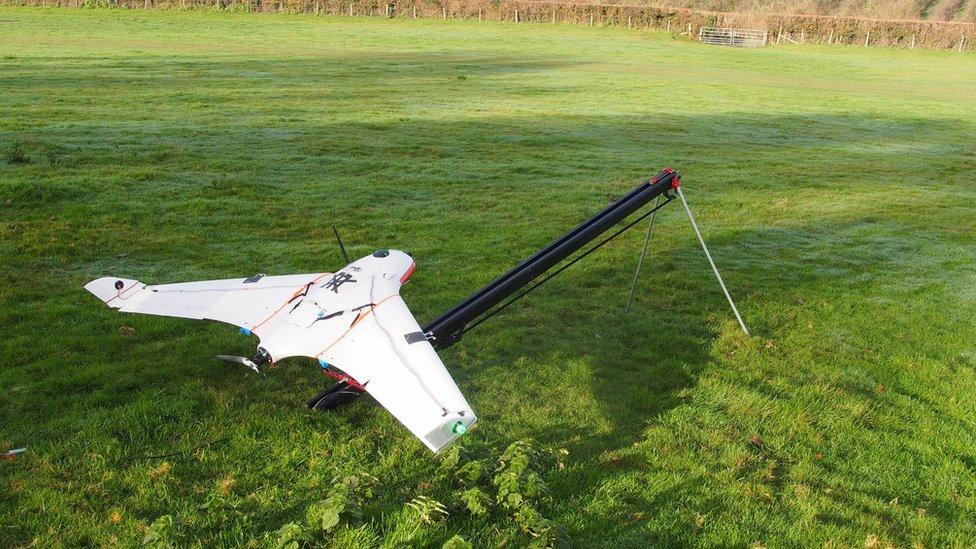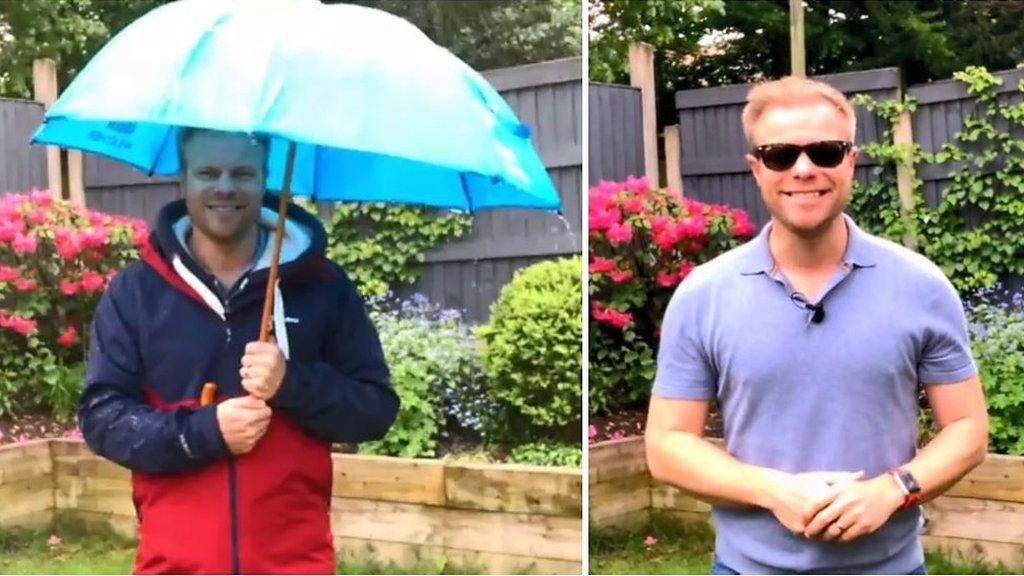Drones: United Arab Emirates to use weather-control drones to make it rain
- Published
- comments

The United Arab Emirates (UAE) is one of the hottest countries on the planet, with a harsh desert climate and hardly any rain... Now the country is looking to control the weather!
The UAE sees an average of just four inches (10cm) of rainfall per year, so in order to get more freshwater, they are running an experiment where a small drone will fly into clouds to zap them with an electric charge.
The hope is that by charging water droplets in the clouds, they will be more likely to fall as big drops of rain.

The drone has been tested in the UK and Finland before further tests in the UAE
The idea came from a team of scientists in Reading, UK, in 2017, and tests so far have taken place in the UK and Finland with plans for further testing to take place in the skies near to Dubai.
One of the scientists experimenting with weather control, Keri Nicoll said: "There's been a lot of speculation about what charge might do to cloud droplets, but there's been very little practical and detailed investigation."
What we are trying to do is to make the droplets inside the clouds big enough so that when they fall out of the cloud, they survive down to the surface.
The team found that when water droplets in clouds have a positive or negative electrical charge, smaller droplets are more likely to merge and grow to become big raindrops.
The size of the raindrops is important, because hot places like the UAE have high clouds and very high temperatures, meaning small drops of rain normally evaporate into the air before they reach the ground.
"What we are trying to do is to make the droplets inside the clouds big enough so that when they fall out of the cloud, they survive down to the surface," said Nicoll.

The drone is launched into the clouds using a catapult
The team was given $1.5 million (£1.06m) for the research and development of four special weather drones built at the University of Bath.
Each aircraft is propelled into the air using a catapult and are equipped with sensors for measuring temperature and humidity, as well as charge emitters - the bits that do the zapping.
The coronavirus pandemic has meant the team have been unable to travel to the UAE, so instead drone pilots in Dubai have been trained to use the aircraft and are now waiting for the right weather conditions to complete the tests.
- Published27 May 2021

- Published18 August 2020

- Published10 April 2018

